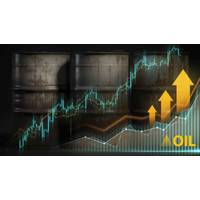Neste Oil Seeks to Cash in on EU Renewables Targets, Russia Tensions
Finnish refiner Neste Oil said its biofuel business stands to gain from higher EU renewable energy targets and Europe's attempt to reduce reliance on Russian oil and gas.
The company, which has three plants in Porvoo, Finland, Rotterdam and Singapore, is one of the world's top producers of a high-quality biodiesel and has become a bellwether for global demand for renewable fuel.
European Union members have set a target of sourcing 20 percent of their energy consumption from renewable sources including biodiesel, wind, solar and hydro power by 2020.
Standard biofuels such as ethanol can be blended into gasoline used in cars only up to a proportion 7 percent due to their chemical composition - in what is known as the "blend wall". However Neste's higher-quality biofuel can be blended in at far higher proportions, though it is much more expensive.
European countries are seeking to increase the biodiesel content of their road fuel above the 7 percent level to help them meet the 2020 renewable energy target - and Neste expects to be a big beneficiary.
"France, Germany, all the Scandinavian countries are hitting the blend wall now and are going beyond 7 percent and of course that gives us a lot of opportunities and we believe there is still growth in Europe," Kaisa Hietala, Neste's head of biofuels, told Reuters.
UKRAINE CRISIS
Neste is this year set to produce about 2.4 million tonnes of high-grade renewable diesel, mostly for sale in Europe and North America, with production expected to increase to 2.6 million tonnes by 2017, Hietala said.
The state-controlled refiner is hoping to expand its business by offering renewable lubricants, chemicals and aviation fuel. It is seeking EU approval to blend 2 percent of its renewable jet fuel into airlines' fuel mix, Hietala said.
Operating profit from its biofuels, produced from vegetable and waste oils and animal fat, reached 31 million euros ($40.1 million) in the second quarter of 2014 - almost half the company's total profit of 69 million euros.
At the end of last month, Neste cut its profit outlook for the full year due to damage at its 206,000 barrels per day Porvoo refinery.
The company also says the European Union's attempts to reduce its reliance on Russian oil and gas in the wake of the Ukraine crisis could further boost demand for renewables.
"This whole crisis will emphasise the need for energy security for the whole of Europe and we believe that it will also impact the way Europe will think about biofuels," sad Hietala.
The European Commission is currently in a legislative process to approve within two years a renewables energy target for 2030 to further cut the zone's dependency on fossil fuels.
So far, it has suggested 2030 policy should include a 27 percent goal for renewables as a proportion of energy sourcing and a 40 percent cut in carbon emissions versus 1990 levels.
(1 US dollar = 0.7725 euro) (Reporting by Ron Bousso; Editing by Pravin Char)







